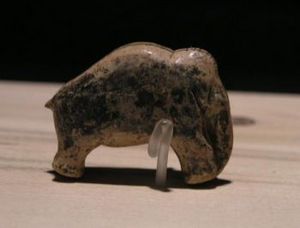
© The Daily MailA taste of the future: Plunging temperatures around Britain created dramatic 2-ft icicles over Sleightholme River in County Durham
It has plagued scientists and politicians for decades, but scientists now say global warming is not the problem.
We are actually heading for the next Ice Age, they claim.
British and Canadian experts warned the big freeze could bury the east of Britain in 6,000ft of ice.
A taste of the future: Plunging temperatures around Britain created dramatic 2-ft icicles over Sleightholme River in County Durham
Most of Scotland, Northern Ireland and England could be covered in 3,000ft-thick ice fields.
The expanses could reach 6,000ft from Aberdeen to Kent - towering above Ben Nevis, Britain's tallest mountain.
And what's more, the experts blame the global change on falling - rather than climbing - levels of greenhouse gases.



Comment: But don't mention comets.